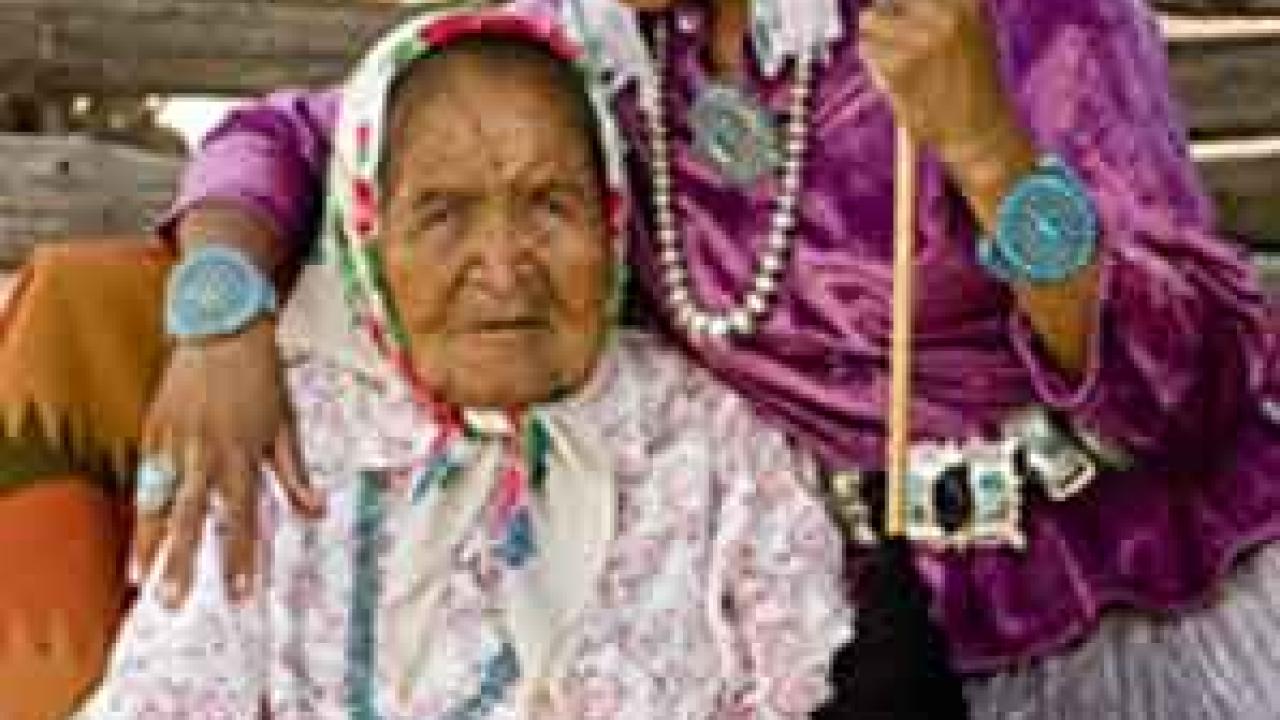AT A GLANCE
- Exhibition — “IndiVisible: African-Native American Lives in the Americas," official launch, 1-2 p.m. Thursday, Nov. 13, Art Lounge, Cross Cultural Center (in the Student Community Center). The exhibition is open now and runs through Dec. 19 in the Peace Lounge at the Cross Cultural Center.
- Film — Hearing Radmilla, followed by a question-and-answer session, 4-7 p.m. Thursday, Nov. 13, multipurpose room, Student Community Center.
- Symposium — “Responding to IndiVisible: African-Native American Lives in the Americas,” 8 a.m.-5:30 p.m. Friday, Nov. 14, multipurpose room, Student Community Center.
More information (including a link to the symposium program).
All events are free and open to the public.
A mostly unknown group of Americans — those of African-American and Native American heritage — are the subject of a documentary film screening and a symposium planned at UC Davis this week.
An accompanying exhibition, “IndiVisible: African-Native American Lives in the Americas,” from the Smithsonian Institution, is already open at the Cross Cultural Center (in the Student Community Center). The exhibition's official launch is scheduled for Thursday afternoon (Nov. 13). See box.
“IndiVisible” examines the history that brought African-Americans and Native Americans together, providing a rare view into the complex lives of people of dual heritage through food, language, writing, music, dance and the visual arts. Notable figures in U.S. history with this dual ancestry include the first causality of the Revolutionary War, Crispus Attucks; poet Langston Hughes; musicians Jimi Hendrix and Doc Cheatham; and sculptor Edmonia Lewis.
The film, Hearing Radmilla, explores the life of Radmilla Cody, whose election as the first biracial Miss Navajo Nation caused widespread controversy. Cody and the film’s director, Angela Webb, are due to attend the screening and participate in a question-and-answer session afterward.
The program for the symposium, “Responding to IndiVisible: African-Native American Lives in the Americas,” includes three research panels:
Grounding Freedoms — With speakers addressing conservation tools to protect culturally important places; indigeneity, nation states and Afro Latin America; African-Native place-making in 19th-century Bridgeport, Conn.; and "Displaying African Transculturalization in Native America."
Common Sense of Racial Formation — Addressing blood and belonging; molecular narratives of racial identity; and "Garifuna (Honduras) and the Meanings of Black, Indigenous, African and Indian."
Resounding Modernities — Addressing "The Invisible Vanguard of Modernity"; the musical mixture of Alaska's African-Inuit people; and Bolivian hip hop.
The panelists includes UC Davis scholars; Angela Gonzales, a professor at Cornell University and one of the curators of “IndiVisible"; and other scholars from UC Santa Cruz, San Francisco State University, the University of Washington and the University of Chicago.
The symposium also includes a photographers’ presentation: “Renegades.”
“IndiVisible: African-Native American Lives in the Americas” is a product of the National Museum of the American Indian, the National Museum of African American History and Culture, and the Smithsonian Institution Traveling Exhibition Service, with support from an anonymous donor and the Latino Initiatives Pool, administered by the Smithsonian Latino Center.
Sponsors: Program in African American and African Studies, Department of Native American Studies, and Cross Cultural Center. Co-sponsors: dean of the Division of Humanities, Arts and Cultural Studies; dean of the Division of Social Sciences; dean of the School of Law; Davis Humanities Institute; Hemispheric Institute on the Americas; departments of Music, History, Anthropology (sociocultural), Sociology, and Women and Gender Studies; Women's Resources and Research Center; Office of Campus Community Relations; Student Affairs; UC Center for New Racial Studies; and UC Institute for Research in the Arts.
Media Resources
Dave Jones, Dateline, 530-752-6556, dljones@ucdavis.edu
